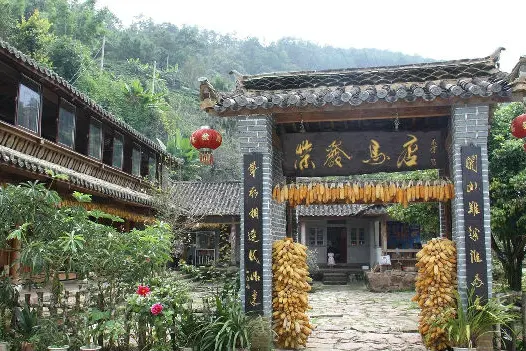More than 100 years ago, Rongfa Inn welcomed caravans and merchants along the ancient Tea and Horse Road, a trade route linking southwest China and South Asia.
Once a staging point in the journey for merchants selling tea, china and silk as far away as Nepal, Rongfa Inn is now a village hotel, attracting visitors with its pastoral scenery and the aroma of the local Pu'er tea.
"Our family has been running Rongfa for four generations," said 36-year-old owner Li Shaomeng, of Nakeli village in Hani and Yi Autonomous County of Ning'er, Pu'er City in southwest China's Yunnan Province.
The hotel can accommodate over 100 visitors and brings in 100,000 yuan (16,000 U.S. dollars) a year for Li's family, seven times more than farming.
Li isn't the only one to cash in on the tourism boom. There are 22 village hotels in Nakeli, where more than half of the 1,700 villagers are ethnic minorities.
Tourism blooms
Tourism has flourished in the villages of Yunnan, providing jobs for more than 270,000 people in the past five years and lifting 380,000 people out of poverty, according to statistics from the provincial bureau of tourism.
Nakeli attracts more than 400 daily visitors on average, and tourism has brought nearly 300 villagers out of poverty. The average annual income per person increased to 6,207 yuan in 2015, triple that of 2010.
But villagers were skeptical about welcoming guests into their humble homes and treating them to simple local fare.
After an earthquake hit Nakeli and destroyed buildings and roads in 2007, the local government decided to reconstruct the village for tourism, and encouraged villagers to build village hotels through subsidies of up to 28,000 yuan per hotel.
The quake-hit village transformed itself into a tourist resort. During the week-long National Day holiday in 2015, China's "golden week" for travel, 30,000 tourists crowded into Nakeli, charmed by its beautiful natural scenery and minority cultures.
Gao Jiabao, a villager from Nakeli, was once a migrant worker but is now a hotel boss.
"I used to drift from city to city, but could only live hand to mouth" said Gao.
"Now I can stay at home and earn a yearly income of more than 100,000 yuan by running the hotel and planting tea."
Nakeli has over 266 hectares of tea plantations, with Pu'er tea the most famous variety grown. Gao's son, Gao Shixing, is bringing local tea to visitors from around the world.
"Guests to our village hotel can taste homegrown vegetables and visit the mountains to pick tea," said Gao Shixing.
Thanks to Internet, the Gao's sold out their spring tea this year even before it was ready for the market, to online customers from Beijing, Taiwan and Malaysia.
After studying an e-commerce training course in Qingdao City in east China's Shandong Province last September, Gao became one of a few who use the Internet to promote his village hotel.
"More people will know about us once we promote ourselves online, and visitors can make tea orders and reservations during peak tourism season, which gives us more time to prepare," said Gao.
As for his father, living hand to mouth is a thing of the past. After welcoming tourists to his hometown, the elder Gao has even saved enough to plan a bit of travel himself.
"I've only worked outside, but I'm considering going on a trip this year," said Gao Jiabao.
 简体中文
简体中文

